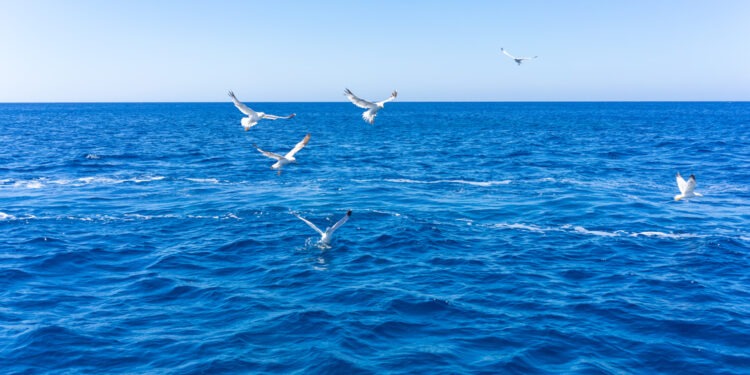Climate change and its impact on European seas – Science never stops sounding warnings about the impact of global warming and climate change on ecosystems. A recent international study, published in the journal Nature Communications, now points to changes in the biodiversity of Europe’s seas and oceans as a result of steadily rising temperatures.
The research examined the extent to which long-term trends and changes in European marine communities, including zooplankton, benthos, pelagic and demersal invertebrates, and fish, have been linked to ocean warming. The research team used the Community Temperature Index (CTI), a standardised indicator that provides quantitative information on the status of a community in terms of species composition and response to warming based on their affinity for warm or cold waters.
Analyses were based on time series of up to four decades from 65 monitoring programmes, including historical data for a total of 1,817 species in the Northeast Atlantic, Mediterranean and Baltic Seas.
Tropicalisation and deborealisation
The results of the study show that most communities and habitats in European seas have responded to ocean warming through two ecological phenomena known as tropicalisation and deborealisation.
“Tropicalisation, or the increase in warm-water species, dominates in the Atlantic, while deborealisation, the process of decreasing cold-water species, is particularly marked in semi-enclosed basins such as the Mediterranean and the Baltic, which also experience the fastest rates of warming,” explains Guillem Chust, a researcher at the AZTI Technology Centre and lead author of the study.
These patterns are attributed, on the one hand, to the greater ease of dispersal and colonisation of species in open environments, but there are also cases of invasion in semi-enclosed seas. A significant example is the increase of warm-water species from the Indo-Pacific Ocean in the eastern Mediterranean, which arrived via the Suez Canal and compete with native species, thus altering food chains and marine ecosystems.
On the other hand, deborealisation reflects the vulnerability of biodiversity in the Mediterranean and Baltic basins to rising ocean temperatures. Physical barriers limit connectivity, thus reducing the migration of cold-water species to more suitable habitats.
Some fish species are declining in numbers, such as the European sardine in the Mediterranean and cod in the Baltic Sea, both important ecological and commercial resources. “Rising temperatures can lead to population collapses or local functional extinctions, affecting fisheries and the local economies that depend on them,” says the AZTI expert. Other marine life, such as coralligenous organisms and zooplankton, are also affected by rising temperatures, with impacts on biodiversity and habitat structure, as well as the availability of food for fish and other organisms.
Ocean warming and related changes in marine biodiversity could affect ecosystem services and marine resources. “Fisheries will have to adapt, including adjusting fishing grounds, seasons and diversifying into new species that may increase due to climate change,” says Myron Peck, co-author of the research and head of the Coastal Systems Department at NIOZ.
In addition, science-based management and regulation, including adapting catch quotas and fishing effort to changing population abundances, as well as implementing conservation measures to protect vulnerable species and ecosystems, will be crucial.
The research published in Nature Communications was led by AZTI, with the collaboration of 39 international experts and funding from the European Union through the FutureMARES project, coordinated by the Netherlands Institute for Marine Research NIOZ.
Climate change and its impact on European seas








